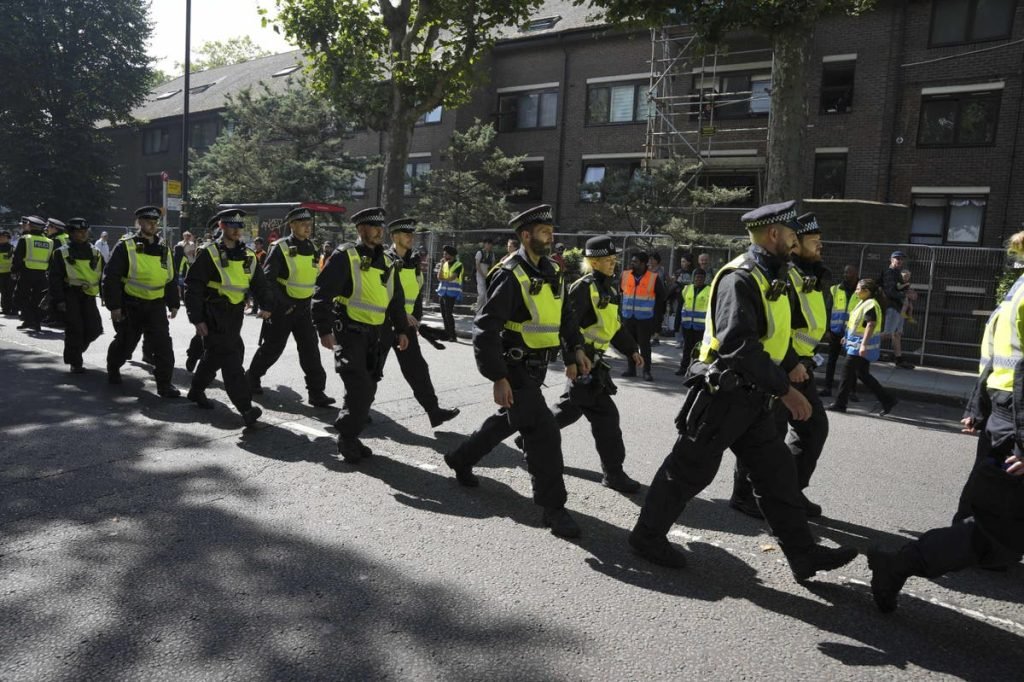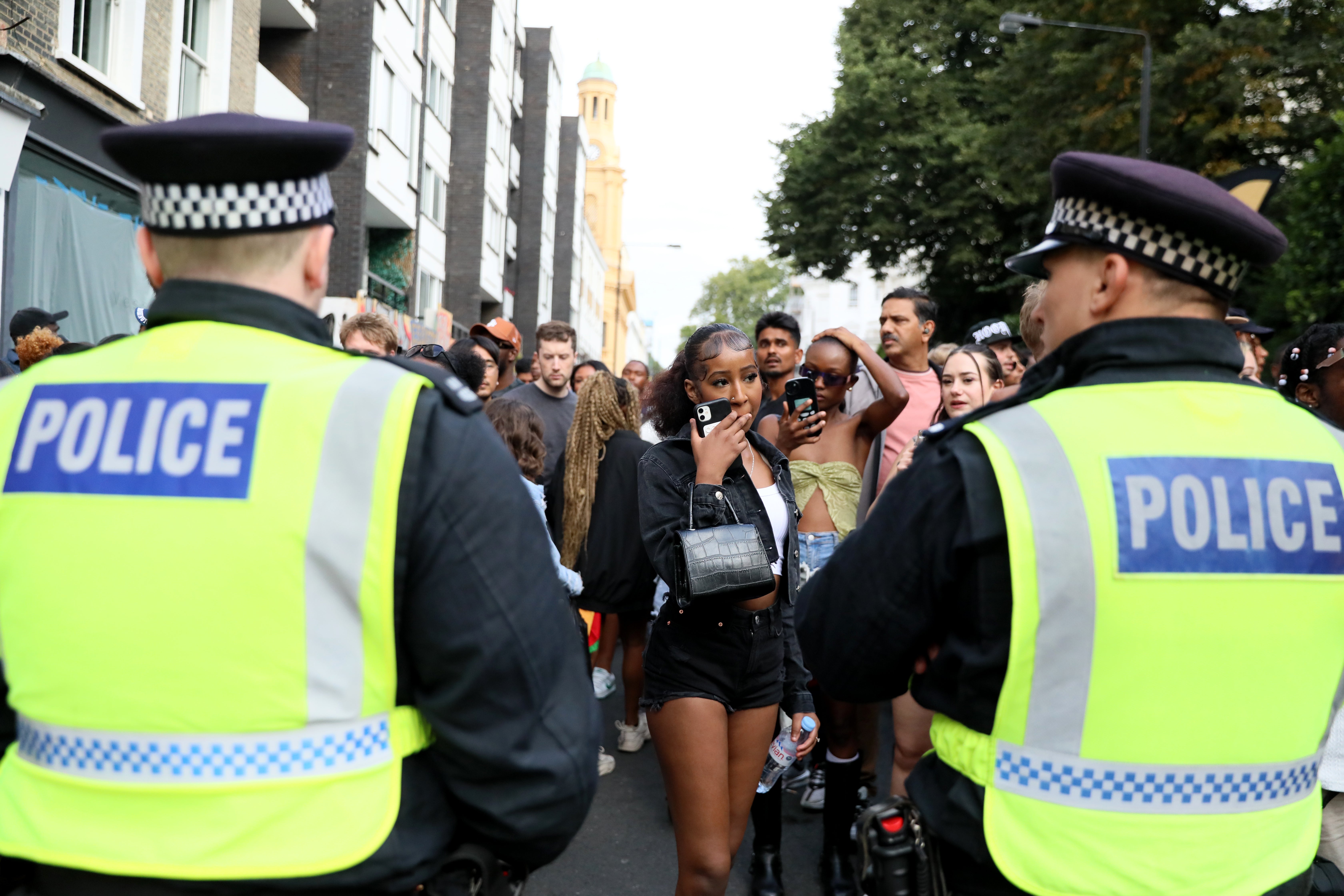
A police officer sent to work at Notting Hill Carnival said they felt like they were treated like “lambs to the slaughter”, according to a survey by the Metropolitan Police Federation.
Almost 90 per cent of officers who responded to the survey said they have felt unsafe while on duty there – but event organisers have responded by claiming it was “driven by unsubstantiated quotes and little solid data”.
Hundreds of thousands of revellers fill the streets of west London over the August bank holiday weekend with a display of costumes, dancing and music.
The annual celebration – billed as Europe’s biggest street party – has been running for more than 50 years.
However, among the findings of the was that officers felt they were treated like “lambs to the slaughter” at the event.
Based on candid quotes and comments from frontline officers who have worked at the carnival, survey results, newspaper cuttings from the last 10 years and crime statistics, the 24-page dossier is being made publicly available with a view to improving safety for the public and police at future events.

The survey, run in the members’ area of the Metropolitan Police Federation website, received 486 responses.
Of those who responded, 28.78 per cent said they had been assaulted while policing the carnival.
Asked if they had ever felt unsafe working at the carnival, 88.66 per cent said yes.
Asked to sum up in a sentence how they feel about policing the carnival, responses included “Hell. It’s a war zone we are sent into year after year” and “Dangerous. Officers are treated as lambs to slaughter”.
Other comments included “Overstretched, ineffective, and an exercise in self-torture” and “I would rather crawl naked through broken glass”.
In a statement, Notting Hill Carnival Ltd said: “We value the vital contribution to carnival of all police officers, including those from the City of London and British Transport Police, but this survey is hugely flawed.
“It is quite clearly written with an anti-carnival agenda that the Police Federation highlights every year. It is driven by unsubstantiated quotes and little solid data, designed to create negative headlines.
“The survey returned views at best of just 7% of potential officers on duty and much of it highlights concerns officers have about their general wellbeing at the event in regards to food and rest. This is a staff management issue for the Metropolitan Police.
“The carnival community is tired of the police using Notting Hill Carnival as cover for their own issues.”
Simon Hill, deputy general secretary of the Metropolitan Police Federation, said the purpose of the survey was to get “concrete evidence of the experience of police at the event”.
He added: “We chose to focus our survey on the Notting Hill Carnival rather than another large-scale event because of the consistent volume of assaults reported by officers after the event every year.
“Officers also work approximately 30 to 40 hours over the two days, which can have a significant impact on their wellbeing.
“We are also extremely concerned about the public who attend the event being victims of crime that officers feel powerless to prevent due to the sheer number of attendees and crimes committed. No other event in London has this combination or level of issues for officers.”
According to the federation, there were two murders, eight stabbings and 349 arrests at this year’s event. Across the weekend, 61 officers were assaulted, the federation added.
In response to the survey, Metropolitan Police Deputy Assistant Commissioner Matt Ward said Carnival was “one of the most iconic cultural and community events in London”, but warned the way it was run needed to be changed.
“But while there have been improvements in recent years, it’s clear there is a need for a step change in the way it is being run if the significant crowd safety risks are to be addressed and to avoid, in a worst case scenario, a mass casualty event caused by overcrowding,” he said.
“This can only be achieved with the organisers, local authorities and City Hall all working in partnership with the police to agree clear lines of responsibility, accountability and funding in order to deliver a safe event.”





